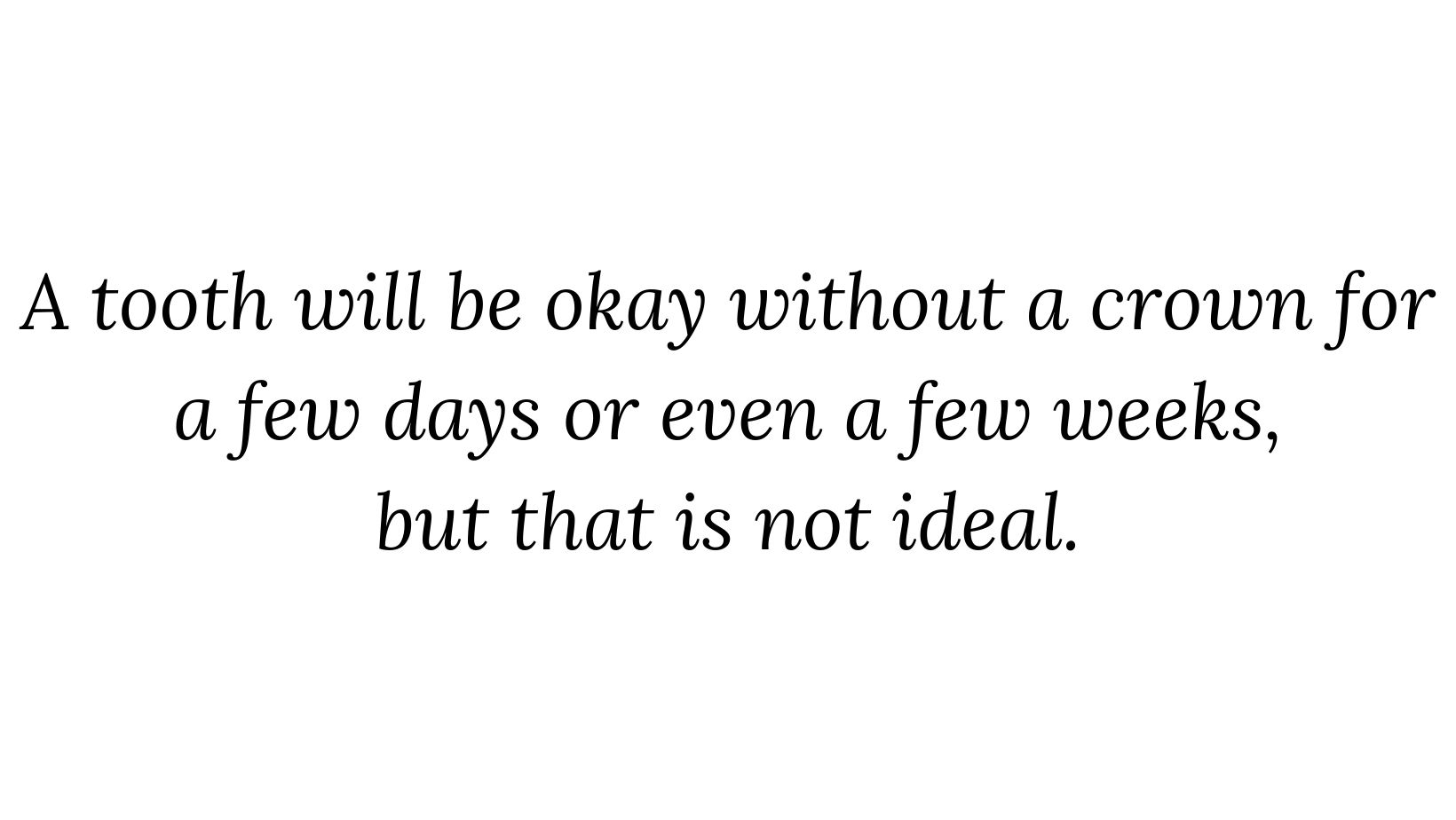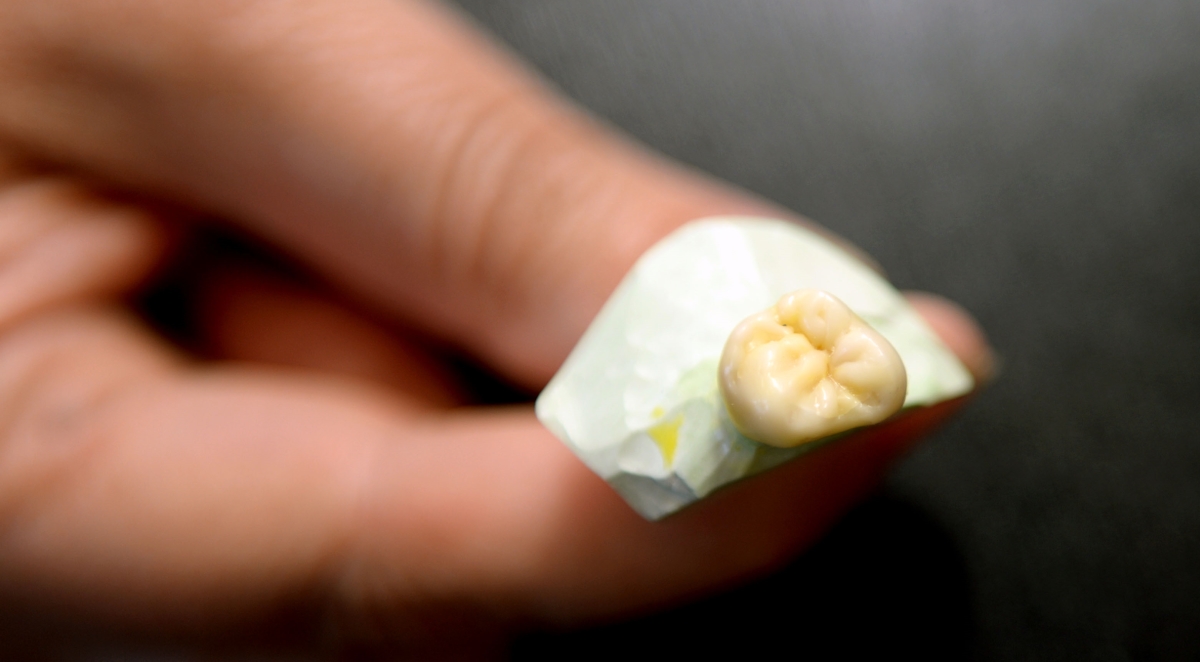Crowns are commonly used to cap a tooth after a root canal procedure. They provide the tooth with strength and support. Crowns also protect the tooth from outside forces and infections, while providing the feel and appearance of a natural smile.
Unlike veneers which cover the front of a tooth, crowns cap the entire tooth. Sometimes the dentist will use a temporary crown as a placeholder for about two weeks. This allows time for the tooth to head and for a permanent crown to be made.
When a crown falls out, there is no need to panic. In most cases, the root canal procedure does not need to be redone. It is important to address the situation right away, however. There are some immediate steps to take when a crown falls out.
What To Do If a Crown Falls Out
When a crown falls out, there are few things to do. This short list will guide any person through the process of caring for a tooth after the crown has become loose, dislodged, or fallen off.
- Contact a Dentist Immediately
The first thing to do when a crown falls off is call the dentist. Inform the dentist if the crown is lost or if the affected tooth is in pain. When scheduling an appointment, ask the dentist for additional advice on how to care for the tooth until the crown can be replaced or reattached.
If an endodontist instead of the dentist did the root canal procedure, contact the endodontist who performed the procedure instead.
If the crown is loose or dislodged but has not fallen out, ask the dentist whether to remove the crown. If advised by the dentist to do so, do so remove the crown very gently. If this causes pain, wait to see the dentist. In some cases, a dentist may recommend temporarily attaching the crown with store-bought tooth cement. Do not do this unless instructed to by a dentist.
- Clean & Store the Crown
Rinse the crown in warm water. This will help keep it clean. Then, it is important to safely store the crown. The dentist will want to inspect the crown. Reattaching it may also be possible, which would save the cost of getting a new crown. If the dentist has recommended temporarily reattaching the crown with tooth cement, do this instead.
- Avoid Certain Foods & Brush Gently
Avoid sticky and hard foods, as well as any food that is difficult to chew or requires a lot of chewing. It is also wise to avoid chewing on the side with the affected tooth. Maintain normal dental hygiene practices, but with gentleness.
- Visit Your Dentist
On the day of the appointment, the dentist will examine the tooth and determine next steps. If the crown fell off because of tooth decay, the dentist may need to fill the cavity. Regardless of why the crown fell out, the dentist will either reattach the old crown or order a new one.
Can a Crown be Reattached After Falling Off?
A crown that has fallen off can sometimes be reattached. The dentist will inspect the tooth and crown to determine if this is the best course of action. If the tooth beneath the crown has become infected or weakened, the crown may not fit on the tooth properly. In these instances, a new crown will be necessary.
The dentist will use tooth cement to fit the crown back into place. When a new crown is needed, one of two things will occur:
Dentists who have the equipment to make same-day crowns will install a new permanent crown. Otherwise, the dentist will fit a temporary crown. It takes most labs two to three weeks to make a new crown. The patient will return for another appointment to have the permanent crown fitted.
How Long Can You Go Without a Crown?

A tooth will be okay without a crown for a few days or even a few weeks, but that is not ideal. It is best to see a dentist or endodontist as soon as possible. A crown on a root canal is there to provide strength and protection where there is none. Leaving a tooth exposed can cause further damage and become a source of pain. If the dentist can not reattach the old crown, another option is a temporary crown to protect the tooth until a new permanent crown is ready.
Is a Crown Falling Off a Dental Emergency?
Yes, a crown falling off is a dental emergency. Even if the crown has just become loose or dislodged, it is still important to contact a dentist as soon as possible. With a missing or loose crown, bacteria can get into the tooth. It can also affect a patient’s bite, making it difficult or painful to chew.
That said, there is also no need to panic or worry. Make an appointment as soon as possible and take the dentist’s advice until then. This will likely be a combination of avoiding certain foods, chewing only on the unaffected side, and gently maintaining dental hygiene practices.
Why Do Crowns Fall Off?
Crowns can last from five to 15 years with proper care. Unfortunately, the tooth beneath a crown can still become infected. Bacteria can sometimes get under a crown, causing decay. This is one reason why crowns fall off. However, there are many reasons a crown may fall off:
- The crown is not properly fitted;
- The tooth beneath the crown has become weakened or infected;
- There is not enough tooth cement holding the crown in place;
- A blow to the mouth dislodged the crown;
- Sticky food or chewing ice pulled the crown off;
- Teeth grinding (called bruxism) loosened the crown.
It is also possible for a crown to become partially dislodged. The patient should still contact their dentist immediately in this instance. They will advise on whether to leave the crown alone until or gently remove it. Never remove a loose crown unless instructed by a dentist.
A Crown Falling Out is a Dental Emergency
A crown protects a tooth. Without a crown, the tooth is exposed to outside forces that may cause further damage. While it is possible to go without a crown for a time, this is not recommended. Contact a dentist immediately when a crown falls out. A dentist can answer any lingering questions and will provide instructions on what to do until the appointment. Find a highly-qualified dentist near you; book an appointment now.


